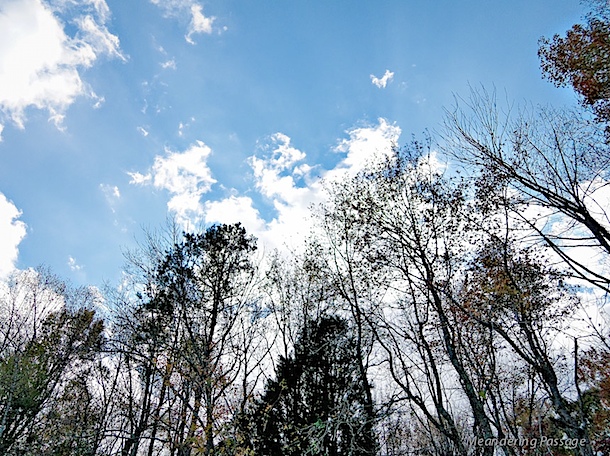
“Temperature plays some role in the cleanliness of the air,” said Todd Miner, a meteorologist at Pennsylvania State University. One temperature-related case involves the chemical reactions that produce ozone. Higher temperatures combined with sunlight provide the conditions that promote ozone, which has well-known irritating effects on the respiratory tract. In general, winter weather systems promote the mixing of the layers of the atmosphere, diluting pollutants, and sometimes those systems import cleaner air from Canada, Mr. Miner said. But mixing can be inhibited in temperature inversions, which are more common in winter in most places. In an inversion, the temperature increases with altitude, rather than the more typical decrease. The inversion can cause pollutants to build up near the ground.
While winter certainly has its negatives, such as the wicked cold weather, it also has pluses. In a recent post, Paul Maxim, made note of the upside of the quietness of winter and snow. For me another plus is the extraordinary clear/clean skies and sweeping clouds.
I’m not certain the air is indeed cleaner in the winter but it seems so and I find myself looking at the sky more often amazed at the crispness. It’s as if it’s in sharper focus during the winter. There certainly seems to be a haze most of late spring, summer and early fall.
Discover more from Meandering Passage
Subscribe to get the latest posts sent to your email.

The “extraordinary clear skies” must be a local phenomenon, Earl. Here on the southern shore of Lake Ontario winter means wall to wall clouds for the better part of 4 or 5 months. Why do you think all those “sunbirds” head south after Christmas? Florida becomes a southern extension of New York State until late April or so. In certain areas, you’ll see more NY license plates than Florida plates. On those rare occasions when the sun does show itself in Rochester for a few hours, you can be sure that you’ll hear someone (unlucky enough to still be here) utter that age old joke: “Hey, does anyone know what that big, bright thing in the sky is?”.
Paul, well we here in this part of North Carolina just try and keep plenty of gasoline on hand so all those NY license plates can fill up and keep moving south. ;-) Have a great weekend!
I like the tree and sky shot. I too seem to like the winter skies for their crispness and seeming cleaner air. The basin Spokane sits in is conducive to inversions. Thankfully I live considerably north and out of the basin!
Don, thanks. I’ve seen photos of areas under the thick air of an inversion but I don’t remember experiencing it here. And there’s the case of Paul, see comment above, who lives in an area off the great lakes mostly cloudy all winter. I guess I never knew how lucky I was to experience a good deal of clean/clean winter skies. Have a good weekend!
This is a very nice shot, Earl. I live very near Paul and I agree that we have more than our share of overcast days here. While I like sunny days as much as the next guy, I prefer the overcast days for photography simply because I like the evenness of the light. And for some reason, it’s not a winter phenomenon here, as we have a lot of overcast days year around.
Hi Ken, I totally agree that the defused light of an overcast day is certainly preferable in many cases to harsh direct sunlight for photography. It’s certainly not clear here all winter but we do have some very clear days. Thanks and have a good weekend.
We sit in a hole here in Missoula too and inversions are a way of life in the winter months. Sometimes I forget what a blue sky looks like. Thanks for the reminder.
PJ, well if you ever feel the need to check if the blue sky and sun is still there during one of these long winters, drop me an email and I’ll confirm it for you! ;-) Have a good weekend.
I would have to agree, Earl. The air does seem crisp and clean at this time of year. Maybe it just seems that way as the cold air is cutting through your nostrils on the way to your lungs. :)
was skiing at 10 below today……everything seemed in sharper focus. In cold air the molecules are farther apart, so ther is less atmospere between eye and object.
no sorry…cold air is more dense